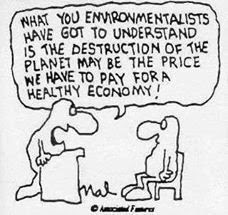The ability of the world has long since reached the point which would allow mankind to go over, in a very short time, to free distribution of the things needed to live and to enjoy life. Socialists are suggesting a world community where wealth is produced by voluntary labour and is available to all free of charge. Socialism will be a society of free access to what has been produced. There will be no money. To many, this suggestion seems fantastic.
It would be wrong to claim that socialism offers the solution to all our problems. However, enormous resources will be freed up when we rid ourselves of the waste inherent in capitalism. A new socialist society will face urgent daunting tasks to remedy the mess capitalism had bequeathed. Socialists do not assume that socialism will solve all problems at once, especially its ability in the crucial early stages. There is a need to be practical and realistic.
It’s doubtful that there could ever be free access to everything for everybody. Not everyone's whim will be accommodated. Socialist communities will have to decide, through their democratic bodies and procedures, what free access will and will not cover, and how to distribute things to which free access cannot be provided. Socialists sometimes discuss free access as being possible by the technological capacity to produce material abundance but this can create an impression of socialism as being some kind of cornucopian consumer paradise. This is not so and there is a need to distance ourselves from such unfortunate connotations that "free access" conjures up over-consumption.
"Free access" simply means an absence of any kind of quid pro quo exchange relationship that underlies access to goods and services in capitalism. While one's access to goods and services in socialism will not be linked to one's productive input this does not mean a severing of consumption and production. In socialism, of necessity, we will recognise far more clearly that we mutually depend upon each other and that we all benefit by ensuring the needs of our fellows are met. Such empathetic understanding will promote a kind of virtuous circle of sustainable development.mIn practical terms that might well mean ceasing or curtailing the production of certain kinds of goods in order to ensure the increased output of higher-priority goods.
Indeed, a socially agreed hierarchy of production goals will be a very important influence on the allocation of relatively scarce resources. A self-regulating system of stock control will reveal the availability of different factor inputs and enable decision-makers to identify those inputs which most constrain or limit the output of any given good. If the supply of a particular input is scarce in relation to the different demands placed upon it, it makes sense to be able to sort these different demands into some sort of order in which they ought to be met. This is precisely where a socially agreed hierarchy of production goals will come into play with priority in resource allocation being given to important goals such as meeting basic human needs (like providing adequate nutrition and housing) possibly at the expense of other less important goals such as the production of certain luxury goods. The less important such goals are the more likely are they to be starved of the necessary resources for their manufacture.
The point is not that we can explain in detail now just how the demand for every item will be realised in socialism. Rather, we can just set out some general principles about how free access would function and suggest that the human nature objections to it are based on a very narrow view of how human beings behave under capitalism. The combination of socialist consciousness and good old common sense will ensure that people will take what they need rather than all that is available or all they can carry. There will be no price labels, and no check-out cashiers because you won’t have to pay for anything. A society of free access will mean what it says. People will select their weekly shopping needs and take home what they’ve chosen, without anyone asking them to pay for it.
The point is not that we can explain in detail now just how the demand for every item will be realised in socialism. Rather, we can just set out some general principles about how free access would function and suggest that the human nature objections to it are based on a very narrow view of how human beings behave under capitalism. The combination of socialist consciousness and common sense will ensure that people will take what they need.

.jpg)
.jpg)
.png)


.jpg)

